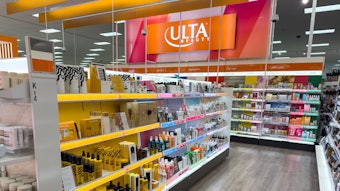As the beauty industry continues to evolve, so do the employment needs of companies and candidates. Here are some current employment trends across all categories and channels of beautyand how they’re impacting employers and employees in the industry.
The Beauty Biz Job Landscape
When this article was authored, unemployment rates (according to the U.S. Bureau of Labor Statistics) were lower in September 2014 than the previous September (5.7% vs. 7%). Yes, we lost jobs during the recession, but we are now gaining back those jobs. As of September 2014, 75% of recruitment firm Mazur Group’s mid-level and executive placements in beauty have been additions in headcount. Many of these additions have been related to increased investment in online marketing, social media and e-commerce, as well as Innovation pipeline development. Another major investment has been in adding sales and marketing positions to support increased distribution across regional and channel expansion in the U.S., as well as major international expansion.
We’ve also noticed a significant uptick in the vertically-integrated business model where a brand develops and sells their own product exclusively online to build their consumer base, ala eSalon, Julep and Lime Crime. In order to stay competitive, traditional beauty companies are continuing to invest in talent that can push their online strategy to the next level.
Hiring Trends
During the recession, companies had to significantly tighten their belts when it came to overhead. With payroll typically being the largest part of a company’s budget, we saw layoffs, salary cuts and relocation expenses eliminated in order to shore up the P&L. Fast forward to late 2014, and we still felt the effects with both consolidation and downgrading of positions (where there is now a VP of marketing with no director, for example, or where there once was a director but now only a senior manager). We’ve also seen a significant backslide in the flexibility to telecommute. In years past, there was much more willingness to consider executive leadership who lived elsewhere and came to headquarters on an as-needed basis. Today, even though companies still aren’t paying full relocation, they do expect their leadership to either be local and commute daily to the office or relocate in order to do so.
Compensation & Benefits Trends
What does it take to attract and retain top talent? Regarding salaries, the pendulum has definitely started to shift back to an employee vs. an employer market. The companies who are not making aggressive offers to top-performing candidates are losing that talent to companies who are, and there has been a significant uptick in counter-offers to retain talent. In the last year, we have heard of at least 10 counter offers on the searches we’ve conducted where in the three years prior, they were almost non-existent.
In lieu of pre-2008 salaries, companies are increasingly offering equity as a component of the compensation structure for VP level positions, and sometimes increasing the benefits—including bonuses, paid time off, etc. Additionally, salaries on offers for the same position are up 10-25% from 2008 across the board.
Talent Search Trends
The way the Mazur Group searches and ultimatelys land candidates on behalf of its clients has also changed. Companies are looking for game-changing candidates, and since cycles in beauty are so long, it takes a considerable amount of time to make a successful mark at a company. For that reason, companies consistently regard stability and tenure very highly, so we strongly encourage candidates to remain at a company for at least 3-5 years, which should lead to at least one internal promotion.
However, in the last several years, we’ve noticed that prospective employers increasingly view a candidate being at a company for 10+ years as a negative. The idea being that if you’ve only done it “one way” for so long, you will struggle to adapt to new methods, and you may not bring as much diversity and richness as someone who has experienced more than one company in the last decade.
A more recent trend is the requirement of a portfolio presentation as part of the interview process. For years, we have recommended that candidates create a portfolio as a visual representation of their accomplishments. We are now seeing many companies insisting that candidates show their work. Standard resumes are no longer enough, regardless of the type of work you do. Whether you’re interviewing for a creative role, marketing, product development or even a supply chain position, a portfolio with solid, physical examples of successfully completed projects and accomplishments may be necessary to put you over your competition for that next step in your career.
Staying Ahead of the Competition
So how does a candidate stand out amongst the competition? Our biggest recommendation is for candidates to share 3-4 P-A-R stories (P=Problem, A=Actions, R=Results), which outline significant, real-life examples of previous accomplishments. Ultimately, these stories indicate how past performance will predict future success in the new position.
Another important tip is to ask for the job. We’ve had employers confide that candidates haven’t been asked back for second interviews or received offers simply because they didn’t feel that they were interested in the position. Throughout the interview, candidates must articulate their true interest in both the company and the desired position and close on it.
Lastly, the beauty industry is a relatively small one. Increase your visibility and establish your connections by attending and making the most out of beauty industry networking events such as those hosted by Beauty Industry West, CEW, TotalBeauty and the Mazur Group's Beauty Biz Roundtable series.
At the end of the day, your personal and professional network is a key driver of where your career is headed.
Using Executive Search
The beauty industry is full of people who are passionate about what they do and who they do it for. It's important to match individual skills and passions with that of company needs and goals.
Legendary oil well firefighter Red Adair was quoted saying, “If you think it’s expensive to hire a professional to do the job, wait until you hire an amateur.” We encourage any company that’s looking to flourish in this ever-changing industry to allocate the proper time and resources to find the right talent to help them achieve their goals.
With 15 years experience recruiting for small to mid-size companies, as well as 25 of the Fortune 100, Frances Mazur has a strong focus on the beauty industry and a broad network of mid-to C-level executives. Her recruitment firm, Mazur Group, places outstanding executive, managerial and professional-level executives, and has a unique process in never posting or pitching jobs to candidates. Mazur Group has a 95% client return rate and a strong track record of helping companies find game changing talent. Frances will always cherish her Midwestern values and work ethic and is a proud alumni of Indiana University and an active member of CEW (Cosmetic Executive Women) and BIW (Beauty Industry West).










